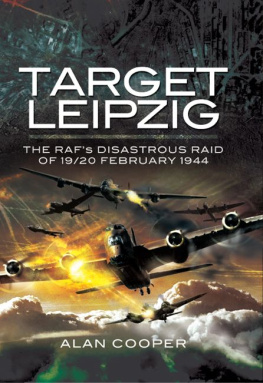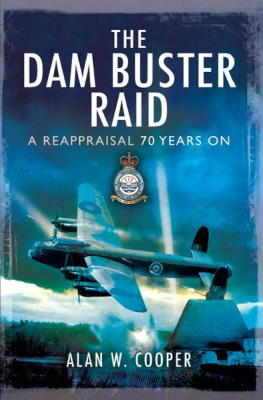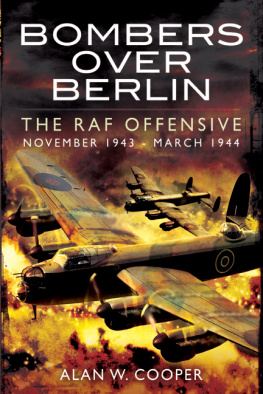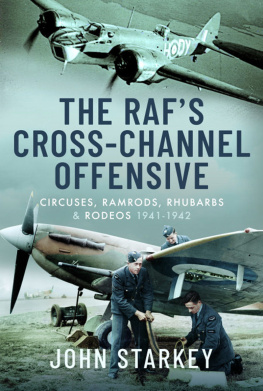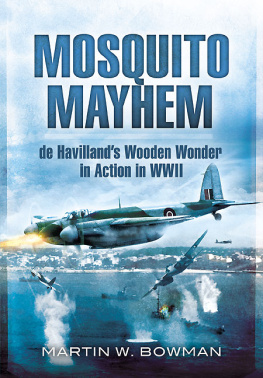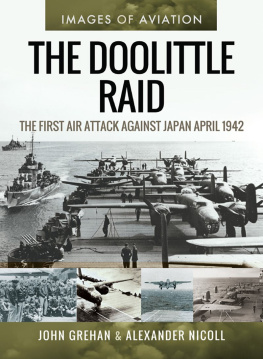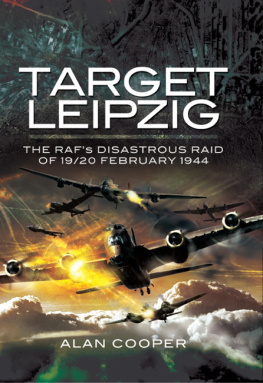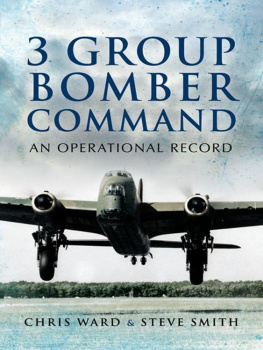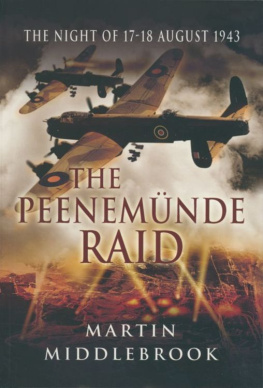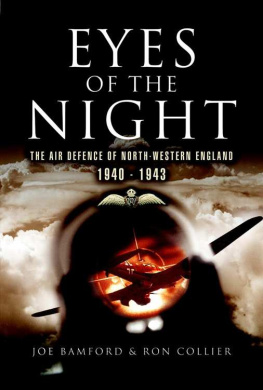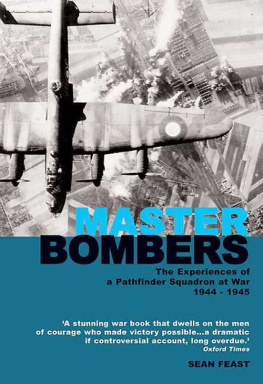
First published in Great Britain in 2009
By Pen and Sword Aviation
an imprint of
Pen and Sword Books Ltd
47 Church Street
Barnsley
South Yorkshire S70 2AS
Copyright Alan Cooper, 2009
ISBN 978 1 84415 906 2
ePub ISBN: 9781844688265
PRC ISBN: 9781844688272
The right of Alan Cooper to be identified as the author
of this work has been asserted by him in accordance with the
Copyright, Designs and Patents Act 1988.
A CIP record for this book is available from the British Library
All rights reserved. No part of this book may be reproduced or transmitted
in any formor by any means, electronic or mechanical including photocopying,
recording or by any information storage and retrieval
system, without permission from the Publisher in writing.
Printed and bound in England
by MPG Books Group
in the UK
Typeset by S L Menzies-Earl
Pen and Sword Books Ltd incorporates the imprints of
Pen and Sword Aviation, Pen and Sword Maritime, Pen and Sword Military,
Wharncliffe Local History, Pen and Sword Select,
Pen and Sword Military Classics and Leo Cooper.
For a complete list of Pen and Sword titles please contact
Pen and Sword Books Limited
47 Church Street, Barnsley, South Yorkshire, S70 2AS, England
E-mail:
Website: www.pen-and-sword.co.uk
Acknowledgements
Nick Knilans
Norman Storey
Leslie Burton
Gordon Carter
Freddie Brown
Steve Bethell
Len Young
Ernest Windeatt
Robert Trett
John Carter
Paul Zorner
Ray Shield
Leslie Bartlett
Tony Sherwin
Bernard Downs
Patrick Turner
Alan Morgan
Victor Southwell
Ken Watkins
Marshal of the Royal Air Force Sir Michael Beetham
Bob Baxter
Mike King
My wife Hilda for her patience and help whenever it was needed
Contents
Introduction
W hat did happen at Leipzig on 19/20 February 1994, the third major attack on the German city in WWII? The first two attacks were quite successful, and, with modest casualties thirty-eight aircraft were missing in two operations.
The third and last major raid on the city took place at the latter end of the Battle of Berlin and proved to involve, at that time, the heaviest losses suffered by Bomber Command in WWII and double the losses of the two previous raids put together.
As proved in other books such as The Nuremberg Raid by Martin Middlebrook, there has to be a reason for these great losses. Perhaps there was a leak in information to the enemy, or other such reasons. By examining the now available material and by talking to the crews involved one can come up with a sound, logical reason why this attack on Leipzig went sadly wrong and many fine men were lost.
Along with the last raid on Berlin by heavy bombers, plus the Nuremberg raid, this raid made the casualties for the first three months of 1944 seem rather high, and in retrospect slightly distorted.
This book is an account of what happened on this operation over sixty years ago and on the two previous raids on the German city of Leipzig, plus the subsequent attacks by the US Army Air Force.
Missing
Failed to Return
M issing, Failed to Return was the terminology in the RAF during WWII for aircraft and men that failed to return from an operation. Some squadrons used missing in their operations record book, officially known as the 540/541, others failed to return. It matters little as they both meant the same thing that a crew and a fighting machine of Bomber Command were out of action. The crew may not be dead of course, a percentage having been taken prisoner and an even small percentage evading capture. But, the facts are there, sixty years later, that the greater percentage would be casualties.
Chapter 1
Aerial Warfare

I t was in 1909 that Lord Montague of Beaulieu outlined the effects of a raid on London by a fleet of airships. He was adamant that in future wars the enemy would not hesitate to use air bombardment to achieve a possible victory.
At this time the Italian Giulio Douhet became involved in the Italian Air Force. He had also written books on mechanised war. He said that in the future war would not only be on the land and at sea but also in the air and would become the third part of any future wars.
In 1910 there were signs that Great Britain would be subject to attack from the air in a future war.
With the use of the machine-gun, tanks and U-Boats also came the aeroplane. This opened the battlefield from the sea and the trenches. It also meant that not only soldiers were involved but also civilians. It also meant that technology would play an important part in all future wars.
This would be based on the accuracy of the bombs dropped from the air and in the early days of aerial warfare this was very hit and miss.
There were a number of factors, two vital:
1. Was supremacy in the air really of such great importance?
2. Could supremacy be attained?
It was considered that such air attacks would considerably harm morale and material damage could be achieved.
In 1909 a meeting was held by Lord Montague and the National Defence Association that outlined the possible effects of a raid on London by a fleet of airships directed on the main government buildings and concluded that this could paralyse the nation. Montague developed an early and important theory about strategic bombing, in which cities such as London were national nerve centres that could be incapacitated by an air attack.
The first bombs were dropped on 1 November 1911 by the Italians during the ItalianTurkish war. A Lieutenant Gavotti carried four bombs in a leather bag and dropped one on a Turkish encampment. Following on from the success of the first drop he then dropped the remainder in a second run over the target. In those days the bombs were more like grenades than bombs and weighed only four and half pounds.
Giulio Douhet first served in the Italian army as an artillery officer but between 1912 and 1915 he commanded Italys first aviation unit, known as the Aeronautical Battalion. He had become involved with the Italian Air Force from about 1909, during which time he had written books on the mechanical side of war. During WWI, having criticised the way the war was being conducted and managed, and saying so in public, he was court-martialled. He was found guilty and imprisoned until 1917. When what he had been saying was found to be true his conviction was retracted and he was put in charge of the Italian air service with the rank of general. But in 1921 he left the services and set out to write books on the theory of air warfare. His book Command of the Air was published in 1922. That same year Benito Mussolini made him head of Italys aviation programme. But he again resigned this post to concentrate on writing.
His theory was that the essence of air power was the offensive and the only good defence was a good offence. The air force who could command the air by bombing the enemy air arm into extinction would doom its enemy to perpetual bombardment, and so command of the air meant victory.
In WWI he had called for a massive build up of the Italian Air Force and proposed a force of 500 bombers that could drop 125 tons of bombs daily. This was completely ignored.
Douhet advocated that the offensive use of aircraft would cut off an opponents army and navy from their bases and that it was much more important to destroy a railroad station, bakery, a war plant or to machine-gun a supply column, moving trains, or other targets than to strafe or bomb a trench. (This we would see in 1944 when the German Army was on the retreat and coming under constant air attacks.)
Next page
